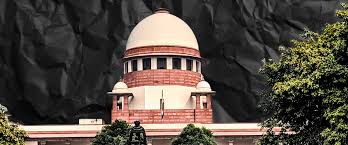CASE COMMENTARY ON A.K GOPALAN VS STATE OF MADRAS
Author – Jaya Sharma, Student at Dr.B.R Ambedkar National Law University, Sonipat & Yash, Student at Chandigarh University, Chandigarh
Best Citation – Jaya Sharma & Yash, CASE COMMENTARY ON A.K GOPALAN VS STATE OF MADRAS, ILE CONSTITUTIONAL REVIEW, 2 (2) of 2023, Pg. 40-43, ISSN – 2583-7168.
ABSTARCT
The case of A.K Gopalan vs State of Madras is a significant judgment in Indian constitutional law that dealt with fundamental rights, state power, and preventive detention. This abstract provides a brief overview of the case, its background, key arguments, and implications.
A.K Gopalan was a Communist leader who was detained by the state of Madras under the Preventive Detention Act, 1950. He challenged his detention in court on the grounds that it violated his fundamental rights under Article 21 of the Indian Constitution, which guarantees the right to life and personal liberty. The case raised important questions about the scope and limitations of fundamental rights in the face of state power.
The Supreme Court of India, in its judgment, held that Article 21 only protects against arbitrary and unreasonable state action and does not guarantee absolute rights. The Court also held that the Preventive Detention Act was a valid law and did not violate the Constitution. The judgment was criticized for its narrow interpretation of fundamental rights and for upholding the validity of preventive detention laws, which were widely used by the government to suppress dissent.
The case had significant implications for the protection of civil liberties and human rights in India. It sparked a debate about the need for judicial review of state action and the role of the judiciary in protecting the fundamental rights of citizens. The judgment was seen as a setback for civil liberties activists, who argued that the state’s power to detain citizens without trial was a violation of basic human rights.
KEYWORDS: A.K Gopalan, State of Madras, Preventive Detention Act, fundamental rights, Article 21, state power, judicial review, civil liberties, human rights.
